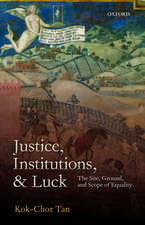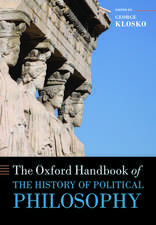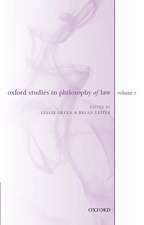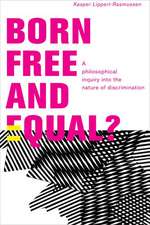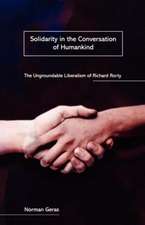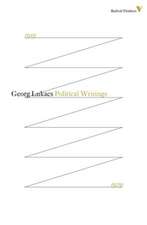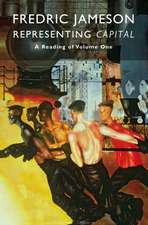The Contract of Mutual Indifference
Autor Norman Gerasen Limba Engleză Paperback – 31 iul 1999
| Toate formatele și edițiile | Preț | Express |
|---|---|---|
| Paperback (2) | 137.38 lei 3-5 săpt. | |
| VERSO – 31 iul 1999 | 137.38 lei 3-5 săpt. | |
| MANCHESTER UNIVERSITY PRESS – 30 mar 2019 | 169.74 lei 6-8 săpt. |
Preț: 137.38 lei
Nou
Puncte Express: 206
Preț estimativ în valută:
26.29€ • 27.52$ • 21.88£
26.29€ • 27.52$ • 21.88£
Carte disponibilă
Livrare economică 10-24 martie
Preluare comenzi: 021 569.72.76
Specificații
ISBN-13: 9781859842294
ISBN-10: 1859842291
Pagini: 192
Dimensiuni: 134 x 190 x 17 mm
Greutate: 0.25 kg
Ediția:Pbk.
Editura: VERSO
ISBN-10: 1859842291
Pagini: 192
Dimensiuni: 134 x 190 x 17 mm
Greutate: 0.25 kg
Ediția:Pbk.
Editura: VERSO
Notă biografică
Norman Geras is Professor of Government at the University of Manchester. His books include Solidarity in the Conversation of Humankind, Marx and Human Nature and The Legacy of Rosa Luxemburg.
Recenzii
“Geras’s is a remarkable book written with passion, compassion, and a genuine belief in the possibility of a better future. He is right to prompt us into proper consideration of what has previously been ignored.”—Imprints
“In his passionate and lucid argument about political theory after the holocaust, Geras explains his baleful titular concept: if you are unwilling to help others in their need, you cannot expect others to do the same for you. Therefore any political philosophy which neglects the primacy of human duty to bring aid is short-sighted and shameful.”—Guardian
“Some devote considerable time and money to combating moral catastrophes, but most of us hardly do more than lift a finger. Our behavior is the subject of Norman Geras’s thought-provoking new book ... Geras identifies a major gap in contemporary political philosophy.”—Times Literary Supplement
“The skill of Geras’s approach is to point to the wider implications of the Holocaust, while refusing to offer easy answers to the intractable questions it raises.”—New Statesman
“In his passionate and lucid argument about political theory after the holocaust, Geras explains his baleful titular concept: if you are unwilling to help others in their need, you cannot expect others to do the same for you. Therefore any political philosophy which neglects the primacy of human duty to bring aid is short-sighted and shameful.”—Guardian
“Some devote considerable time and money to combating moral catastrophes, but most of us hardly do more than lift a finger. Our behavior is the subject of Norman Geras’s thought-provoking new book ... Geras identifies a major gap in contemporary political philosophy.”—Times Literary Supplement
“The skill of Geras’s approach is to point to the wider implications of the Holocaust, while refusing to offer easy answers to the intractable questions it raises.”—New Statesman
Descriere
Descriere de la o altă ediție sau format:
This is the first academic study to address ancient Egypt as it was appropriated across disparate literary modes during the Victorian era. Drawing on texts by canonical authors while illuminating new sources and understudied works, it brings the highbrow and the popular into conversation, addressing contemporary ideas of race, gender and religion.
This is the first academic study to address ancient Egypt as it was appropriated across disparate literary modes during the Victorian era. Drawing on texts by canonical authors while illuminating new sources and understudied works, it brings the highbrow and the popular into conversation, addressing contemporary ideas of race, gender and religion.


